
How To Make Turmeric Tea
Turmeric is known for its anti-inflammatory and anti-oxidant properties. Making turmeric tea is a simple and delicious way to benefit from the power of the golden spice.
If you love curry, then you may well know and love turmeric. This versatile spice is a staple of South Asian cuisine. But, did you know you can also use turmeric to make a delicious tea with a host of potential health benefits?
What is turmeric?
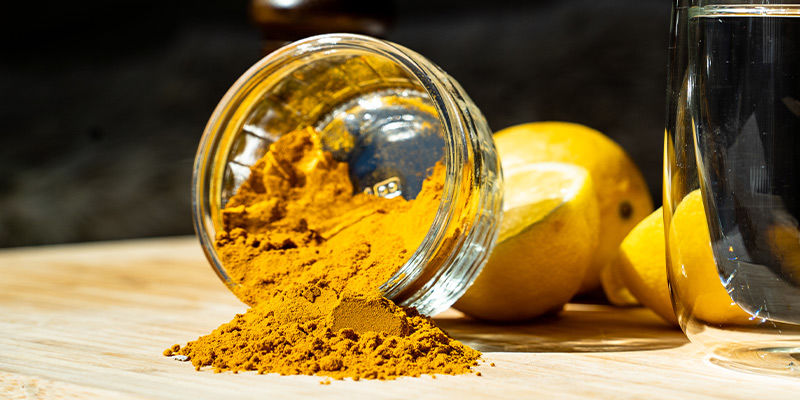
Turmeric (Curcuma longa) is a yellow-orange root that's part of the ginger family. Known as "the golden spice", it has a toasty, earthy flavour that's hard to miss and adds a wonderful colour to dishes. Turmeric has also been used for centuries due to its potential medicinal properties. Many people take it as a supplement or drink it as tea.
How to make a simple turmeric tea
Turmeric tea has a subtle spiciness and a slightly floral aroma. It's earthy, warm and delicious when paired with honey and lemon. All you need are a few simple ingredients and about 15 minutes.
Ingredients

- Water (2 cups)
- Turmeric powder or grated turmeric root (1 tsp)
- Honey
- Lemon juice
- Black pepper (a pinch)
Directions
1. Bring two cups of water to a boil in a pot.
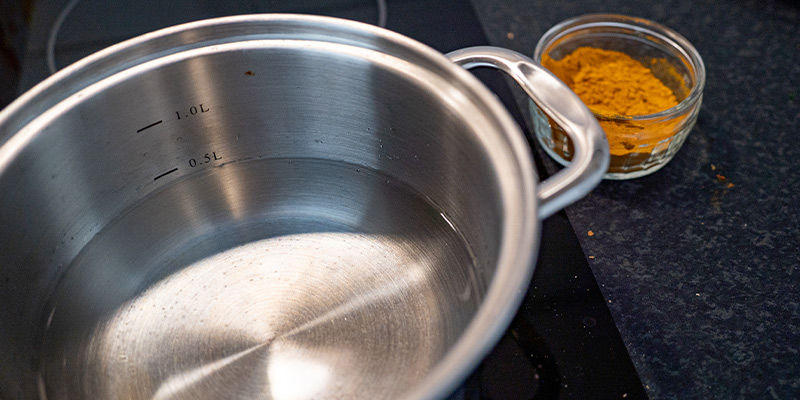
2. Add the turmeric powder or grated turmeric root to the boiling water.
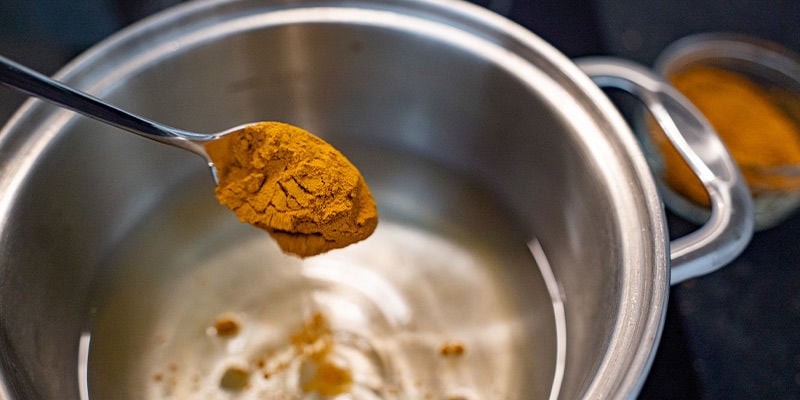
3. Reduce heat to low and let the turmeric simmer for 10–15 minutes.
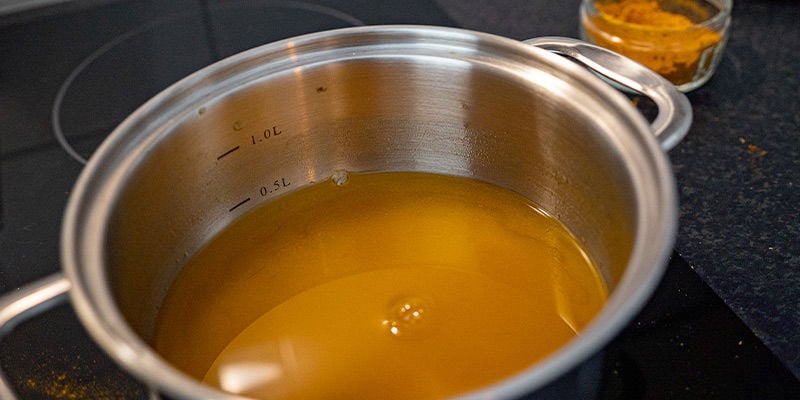
4. Strain the tea into a cup using a fine mesh strainer or cheesecloth.
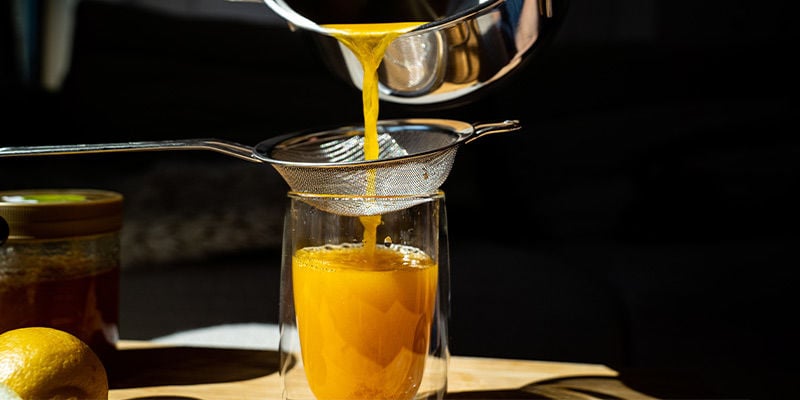
5. Add a sprinkle of black pepper, honey and lemon juice to taste.
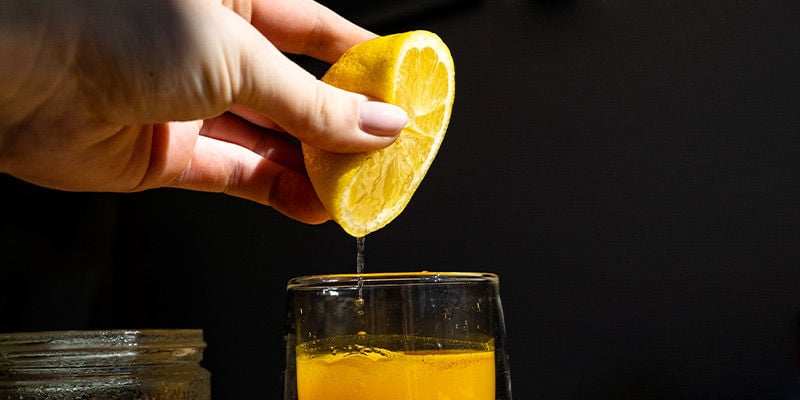
6. Enjoy your delicious and healthy turmeric tea!
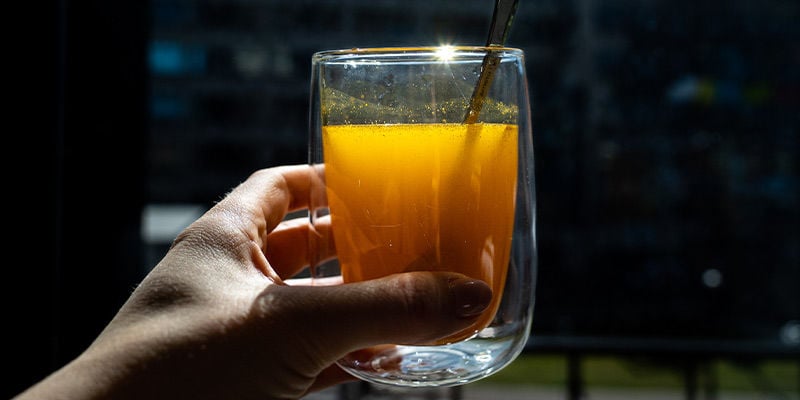
What are the possible benefits of drinking turmeric tea?
Turmeric tea is made from the root of the turmeric plant, which contains a powerful compound called curcumin. Curcumin is thought to have anti-inflammatory and antioxidant properties, which may provide numerous health benefits. These include:
✅Reducing inflammation
Studies have shown curcumin has anti-inflammatory properties (Peng, 2021). Inflammation is linked to numerous chronic diseases such as heart disease, cancer, and Alzheimer's disease.
✅Boosting the immune system
Turmeric tea may help boost the immune system by increasing the production of antibodies and enhancing the activity of immune cells (Jagetia and Aggarwal, 2007).
✅Relieving pain
Curcumin is a natural pain reliever and has shown promise in reducing pain in people with conditions such as arthritis, menstrual cramps, and migraines.
✅Improving digestion
Turmeric tea has been traditionally used to improve digestion and treat digestive issues such as bloating, gas, and indigestion (Dulbecco and Savarino, 2013).
✅Promoting heart health
Studies show curcumin may help lower cholesterol levels, reduce blood pressure, and improve blood vessel function, all of which can help reduce the risk of heart disease (Cox et al., 2022).
It's important to note that while turmeric tea may have potential health benefits, more research is needed and it should not be used as a replacement for medical treatment.
What are the possible negative effects of turmeric?

Turmeric is generally considered safe when limited to less than 8 grams a day. However, it can produce some negative effects in certain people. These are rare and usually only occur when turmeric is consumed in large amounts.
Turmeric may cause stomach upset, nausea, or diarrhoea in some people. Moderate consumption as part of a healthy diet is the best way to mitigate this.
Some people may be allergic to turmeric, which can cause skin rashes, itching, and swelling. Others with certain conditions or who take certain medications should exercise caution (see below).
Turmeric: FAQ
- 🚫Who should not drink turmeric tea?
- While generally considered safe, some people should avoid drinking turmeric tea or speak with their doctor first:
• People with gallbladder issues: Turmeric may stimulate the production of bile, which can worsen gallbladder problems in some people.
• People with kidney stones: Turmeric contains oxalates, which can contribute to the formation of kidney stones in people who are prone to this condition.
• People with iron deficiency: Turmeric may inhibit the absorption of iron, which can lead to anaemia in people who are already deficient in iron.
• People taking certain medications: Blood thinners, antacids and diabetes medication may interact with turmeric tea.
• People who are pregnant or breastfeeding: While there is limited research on the safety of turmeric tea during pregnancy and breastfeeding, it's best to err on the side of caution and avoid consuming large amounts.
• People about to have surgery: Turmeric may act like a blood thinner, so stop drinking turmeric tea at least 2 weeks before surgery (and inform your doctor).
• People who are allergic to turmeric should avoid it completely. - 🦷Will turmeric stain your teeth?
- Turmeric is a bright yellow spice and it may stain your teeth if you consume large amounts of turmeric tea regularly over a long period of time. However, staining is typically more of a concern with concentrated forms of turmeric, such as supplements or extracts.
To minimise the risk of staining, you can take some precautions, such as drinking turmeric tea through a straw, rinsing your mouth with water after drinking turmeric tea, and brushing your teeth regularly. Overall, the staining potential of turmeric tea is relatively low, and any staining that does occur can usually be easily removed with regular dental hygiene practices. - 🌶Why combine turmeric with black pepper?
- Many of the possible benefits of turmeric come from the compound curcumin. However, curcumin is not easily absorbed by the body and has low bioavailability, which means that the body cannot use it effectively.
Black pepper, on the other hand, contains a compound called piperine, which has been shown to enhance the absorption of curcumin by up to 2000% (Prasad, Tyagi and Aggarwal, 2014). When black pepper is combined with turmeric, it helps increase the bioavailability of curcumin, allowing the body to better absorb and utilise its benefits.
A golden spice and a magical tea
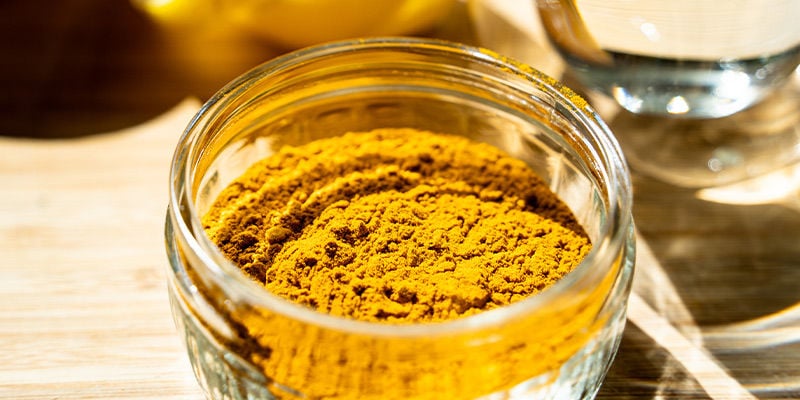
Turmeric tea may not actually be magical, but drinking it could lead to numerous potential benefits. The compounds in turmeric have been studied for myriad therapeutic properties, and it's been used medicinally for centuries in places like India. Why not head to your spice rack, throw some water in a pot, and see what all the fuss is about? It's as easy as one, two, tea.
- Cox, Fiona Frederike, Misiou, Angelina, Vierkant, Annika, Ale-Agha, Niloofar, Grandoch, Maria, Haendeler, Judith, Altschmied, & Joachim. (2022/1). Protective Effects of Curcumin in Cardiovascular Diseases—Impact on Oxidative Stress and Mitochondria - https://www.mdpi.com
- Jagetia, Ganesh Chandra, Aggarwal, & Bharat B. (2007, January). “Spicing Up” of the Immune System by Curcumin - https://link.springer.com
- Pietro Dulbecco, & Vincenzo Savarino. (Dec 28, 2013). Therapeutic potential of curcumin in digestive diseases - https://www.wjgnet.com
- Sahdeo Prasad, Amit K. Tyagi, & Bharat B. Aggarwal. (2014/1/15). Recent Developments in Delivery, Bioavailability, Absorption and Metabolism of Curcumin: the Golden Pigment from Golden Spice, Recent Developments in Delivery, Bioavailability, Absorption and Metabolism of Curcumin: the Golden Pigment from Golden Spice - https://www.e-crt.org
- Ying Peng, Mingyue Ao, Baohua Dong, Yunxiu Jiang, Lingying Yu, Zhimin Chen, Changjiang Hu, & Runchun Xu. (2021/11/02). Anti-Inflammatory Effects of Curcumin in the Inflammatory Diseases: Status, Limitations and Countermeasures - https://www.dovepress.com





 United States
United States












